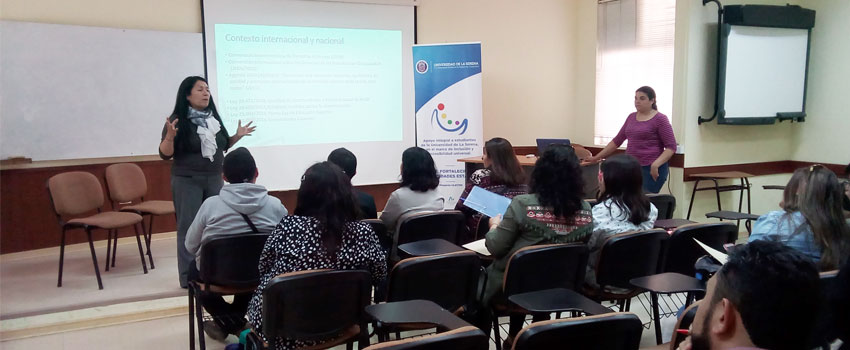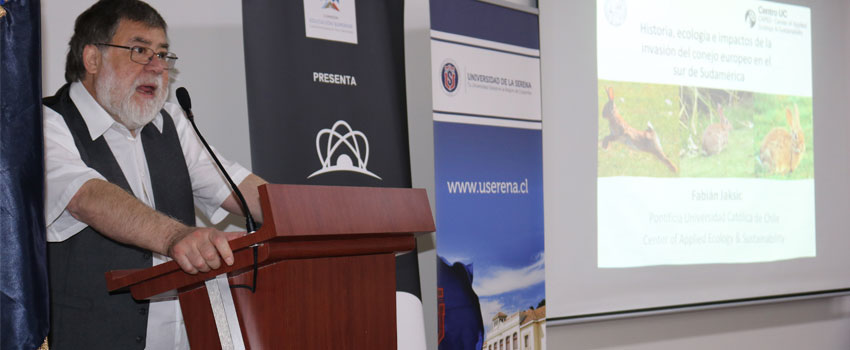
This is what the 2018 National Natural Sciences Prize winner expressed during his visit to the ULS. Dr. Jaksic, a pioneer in the area of Ecology and who has permanently contributed to the development and strengthening of research in this area of knowledge, spoke about the challenges of Ecology in Chile and the current funding crisis due to which crosses science in our country.
Recently, the National Prize winner was invited by the University of La Serena to give a keynote talk within the framework of the activities of the II Binational Congress of Scientific Research Chile-Argentina, and a presentation at the Department of Biology entitled “Long-term studies in Ecology in Chile”, where students and academics participated. Ecology has developed as a solid area of research and development at the ULS, which has resulted in the creation of the Doctorate program in Applied Biology and Ecology and the Doctorate and Master's programs in Biological Sciences, mention of Arid Zones, all accredited by the National Accreditation Commission.
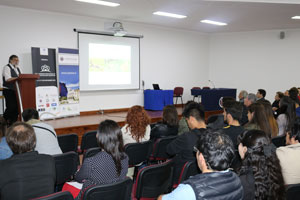 Professor Fabián Jaksic (66) has been one of the pioneers in the use of experimental methods in Ecology, contributing strongly to the training of people in this area. He has dedicated a large part of his career to social needs, participating in more than 67 environmental impact studies, as well as consulting for the State, private companies and non-governmental organizations.
Professor Fabián Jaksic (66) has been one of the pioneers in the use of experimental methods in Ecology, contributing strongly to the training of people in this area. He has dedicated a large part of his career to social needs, participating in more than 67 environmental impact studies, as well as consulting for the State, private companies and non-governmental organizations.
"Due to circumstances specific to the country, I had to be one of the first generation of scientific ecologists in the country (...), I had to receive scientific training (in Ecology) at a time when there were no degrees in ecology, nor master's degrees, much less doctorates,” he said.
After graduating as a biologist from the University of Chile, he headed to the United States to specialize and upon returning in 1982 he was part of a group of no more than 6 pioneering scientists in the area, including Professor Julio Gutiérrez, from the University of Chile. Department of Biology of the ULS, who is currently an academic and among his many works has at least 18 scientific articles published with the National Award.
The National Award winner has dedicated his life to the study of Community Ecology, that is, “the study of all the interactions of all animals and all plants in a certain physical place”, focusing on the study of vertebrates, animals and terrestrial environments. , which has resulted in more than 200 scientific articles and 10 textbooks. The latter is something that prof. Jaksic highlights: “I am not only interested in reaching foreign peers, but I am also interested in influencing the training of biologists in Chile (…) all my texts except one are in Spanish,” stated the professional.
30 years working in the region
His studies have focused on predator-prey relationships; in how animal communities are structured; modeling population dynamics; the El Niño phenomenon, which has led him to work actively in the Coquimbo Region for more than 30 years, publishing more than 30 scientific articles from this work, 17 of which have been in conjunction with the ULS; and what biodiversity is for, that is, how self-sustaining systems are formed and that in turn are capable of resisting human pressures. Currently the prof. Jaksic also dedicates a good part of his time to participating in the management of public policies on the environment, biodiversity and climate change, among others.
Pending tasks of ecology in our country
Jaksic pointed out that by choosing Chile to want to be a developed country and making the commitment to be the 34th member of the OECD, it implies having higher quality public policies, since we choose to compare ourselves with the most advanced countries in the world. “This sets a fairly high bar for us and leads us to have environmental legislation that has to be very in line with the legislation of other countries,” he indicated. He says that this has led us to have legislation that is very advanced. Specifically, due to the free trade agreement with Canada, the Basic Environmental Law was created in 1994, which served until 2010 when other environmental entities were created, such as the Ministry of the Environment, the Superintendency of the Environment, the Environmental Assessment Service and Environmental Courts. “In 16 years (…) a formally very good institutional framework has been created, which fails in what institutional frameworks typically fail (…), we fail in oversight because we do not have a large enough State,” he added.
Chilean science funding crisis
When asked about his opinion about the current scientific panorama after the large cut announced for the 2019 budget, he stated that he sees things “in an ant color, from brown to dark.” The prof. Jaksic believes that the great lack that Chile has in terms of funding for science has become more visible since we are in the OECD, since we only allocate 0.38% of GDP, which leaves us in last place on the list of countries. , “the budget allocated to science as a percentage of GDP is very low, I would say it is almost shameful, we look bad compared to the other OECD countries,” he concluded.
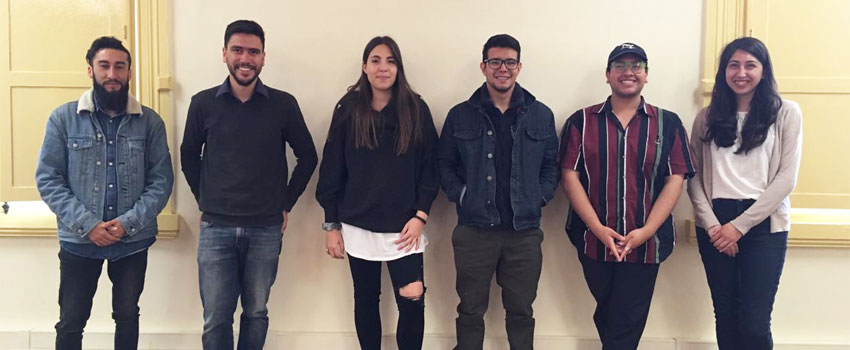
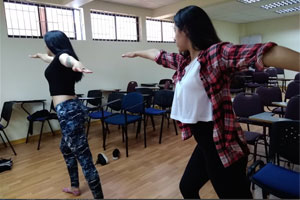 Thus, students with a Design career graduation profile received advice and acquired new knowledge and strategies aimed at promoting early job placement, through the generation of activities that facilitate the construction of an effective curriculum vitae, identification of updated means of application and training regarding the psycho-labor interviews that they may be faced with in the near future.
Thus, students with a Design career graduation profile received advice and acquired new knowledge and strategies aimed at promoting early job placement, through the generation of activities that facilitate the construction of an effective curriculum vitae, identification of updated means of application and training regarding the psycho-labor interviews that they may be faced with in the near future.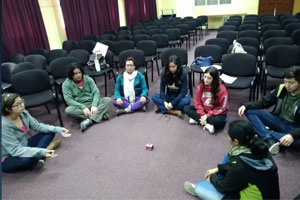 Likewise, students from the Pedagogy in Differential Education and Pedagogy in Early Childhood Education programs attended the yoga workshop, where they were able to connect with their self-awareness, recognizing, feeling and channeling their emotions, creating greater self-confidence and the security of their loved ones. skills, taking advantage of the opportunity, in addition, to promote loyalty and the creation of ties between the university community.
Likewise, students from the Pedagogy in Differential Education and Pedagogy in Early Childhood Education programs attended the yoga workshop, where they were able to connect with their self-awareness, recognizing, feeling and channeling their emotions, creating greater self-confidence and the security of their loved ones. skills, taking advantage of the opportunity, in addition, to promote loyalty and the creation of ties between the university community.
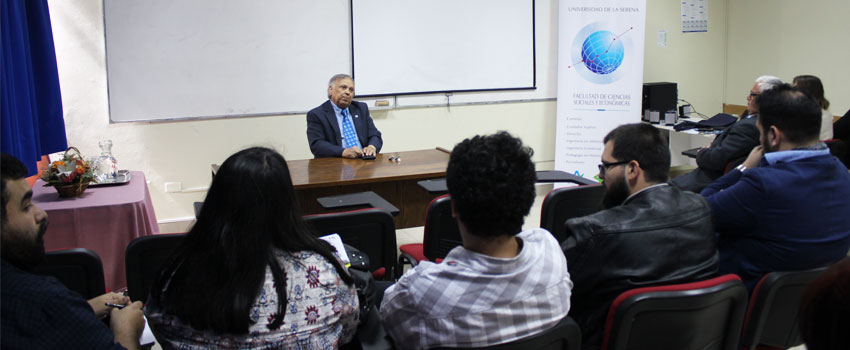
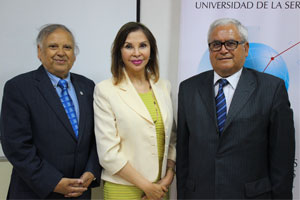 This activity was attended by the Dean of the Faculty of Social and Economic Sciences, Dr. Luperfina Rojas, as well as academics and students from the Pedagogy in History and Geography career.
This activity was attended by the Dean of the Faculty of Social and Economic Sciences, Dr. Luperfina Rojas, as well as academics and students from the Pedagogy in History and Geography career.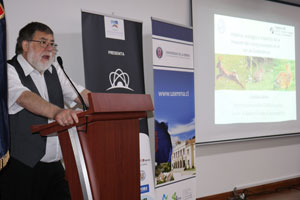

 Professor Fabián Jaksic (66) has been one of the pioneers in the use of experimental methods in Ecology, contributing strongly to the training of people in this area. He has dedicated a large part of his career to social needs, participating in more than 67 environmental impact studies, as well as consulting for the State, private companies and non-governmental organizations.
Professor Fabián Jaksic (66) has been one of the pioneers in the use of experimental methods in Ecology, contributing strongly to the training of people in this area. He has dedicated a large part of his career to social needs, participating in more than 67 environmental impact studies, as well as consulting for the State, private companies and non-governmental organizations.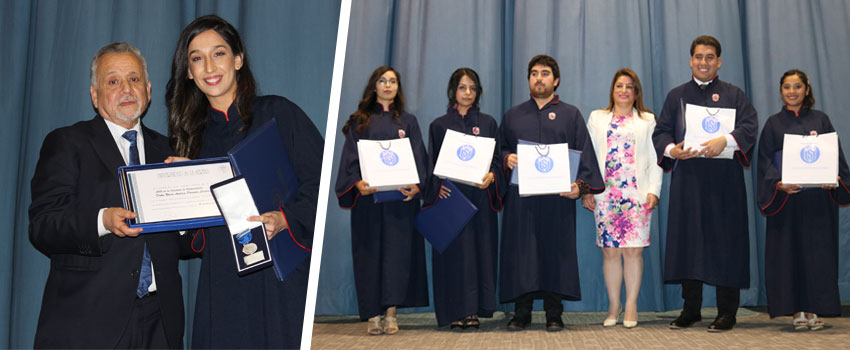
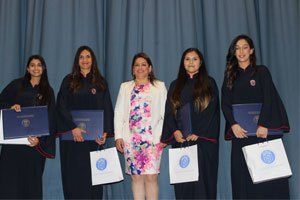 University authorities, directors, academics, parents and relatives of the graduates were present at these emotional events, where new State teachers in Basic General Education (La Serena), State teachers in Basic General Education (Ovalle), teachers of State in Differential Education, preschool educators, State teachers in Spanish and Philosophy, State teachers in English, State teachers in Musical Education, graduates in Music, designers with a Communication major, designers with an Equipment major, English-Spanish translators and psychologists.
University authorities, directors, academics, parents and relatives of the graduates were present at these emotional events, where new State teachers in Basic General Education (La Serena), State teachers in Basic General Education (Ovalle), teachers of State in Differential Education, preschool educators, State teachers in Spanish and Philosophy, State teachers in English, State teachers in Musical Education, graduates in Music, designers with a Communication major, designers with an Equipment major, English-Spanish translators and psychologists.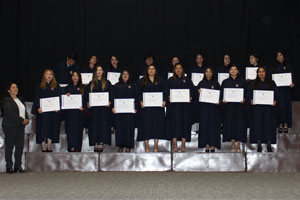 The Dean added that “the celebration that brings us together today is not only unique for you and your family members, but also for the Faculty of Humanities and the teachers who have accompanied you along this arduous path, seeking your human formation, value and intellectual”.
The Dean added that “the celebration that brings us together today is not only unique for you and your family members, but also for the Faculty of Humanities and the teachers who have accompanied you along this arduous path, seeking your human formation, value and intellectual”.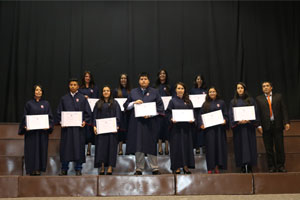 In one of the ceremonies, the “University of La Serena Award” was presented, a distinction that highlights the graduate with the best grade average of his class and which this year went to the new teacher in Basic General Education, Rocío Parada Lucero. The professional received this recognition from the Academic Vice-Rector, Dr. Jorge Catalán Ahumada, on behalf of the Rector, Dr. Nibaldo Avilés Pizarro.
In one of the ceremonies, the “University of La Serena Award” was presented, a distinction that highlights the graduate with the best grade average of his class and which this year went to the new teacher in Basic General Education, Rocío Parada Lucero. The professional received this recognition from the Academic Vice-Rector, Dr. Jorge Catalán Ahumada, on behalf of the Rector, Dr. Nibaldo Avilés Pizarro.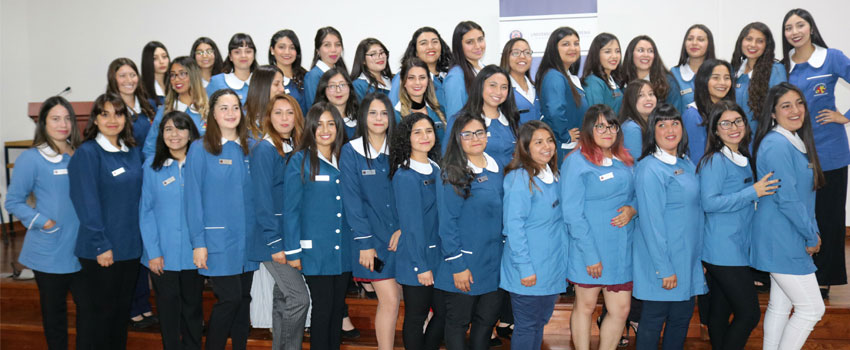
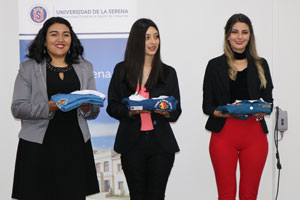 The fourth-year student of the program, Macarena Muñoz, congratulated her second-year classmates and urged them to “take this program seriously because Differential Education was created to defend the right to education, regardless of the differences we have. from each other. Be strong because reality is harsh (…) Be positive references, and to achieve this it is necessary that you never stop learning. Grow as well-rounded people and never stop reading because reading opens our minds, nourishes it, develops it and makes us critical, but above all it makes us aware of improving our environment.”
The fourth-year student of the program, Macarena Muñoz, congratulated her second-year classmates and urged them to “take this program seriously because Differential Education was created to defend the right to education, regardless of the differences we have. from each other. Be strong because reality is harsh (…) Be positive references, and to achieve this it is necessary that you never stop learning. Grow as well-rounded people and never stop reading because reading opens our minds, nourishes it, develops it and makes us critical, but above all it makes us aware of improving our environment.”